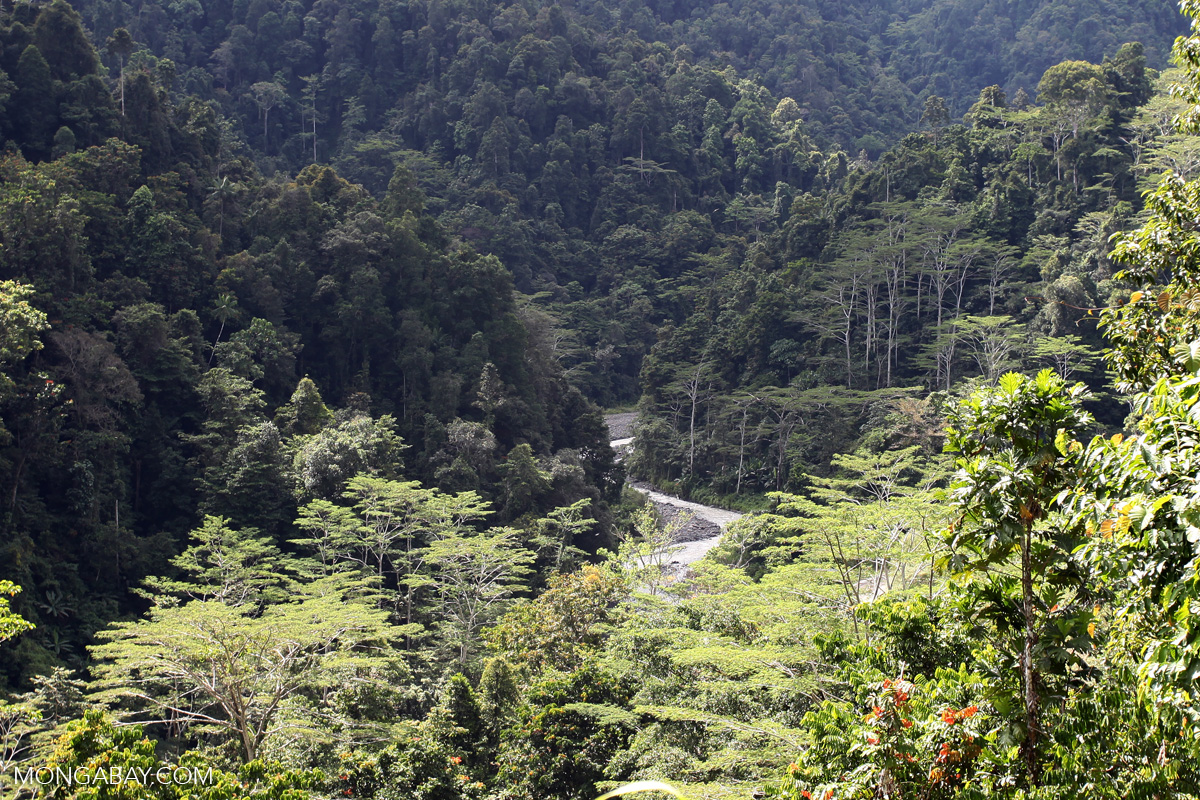With much of the accessible lowland primary forests in Sumatra and Borneo cleared and converted for agriculture and industrial plantations, the Indonesian half of New Guinea is the last stand for the rainforests that once blanketed Indonesia. The diversity of New Guinea’s forests are mirrored in its seas: the ecosystems around West Papua and the Maluku Islands are arguably the richest in the world. The region is also the most ethnically diverse part of Indonesia, and a place where local people depend on nature’s bounty to a greater extent than in many other parts of the archipelago.
Accordingly, the push to colonize, mine and industrialize the forests and seas of eastern Indonesia is seen as a great threat to the region’s ecology, ecosystem services, and cultural and biological wealth. Actors from local communities to activists to scientists have raised alarms over the large-scale plantations and logging operations that have been expanding across Papua and West Papua, the two administrative provinces that make up the Indonesian part of New Guinea, in recent years.

In the mid-2000s, the “Paradise Forests” campaign by Greenpeace helped catalyze global popular awareness of the situation in the region. The leader of that campaign was Bustar Maitar, who was born and raised in Papua. Within four years of joining Greenpeace in Indonesia, Bustar rose to a leadership role at Greenpeace International, where he became a key architect for the organization’s highly impactful campaigns of the late 2000s and early 2010s that pressed major companies in the palm oil and pulp and paper sectors to adopt zero-deforestation policies.
Those campaigns included a range of tactics, from producing extensively documented investigations to colorful street demonstrations in Indonesian cities to headline-grabbing stunts like sending bands of activists dressed as orangutans into shareholder meetings at Nestlé and Unilever. The campaigns also sparked backlash from business-as-usual interests, which targeted Greenpeace activists with lawsuits, arrests and smear campaigns. But ultimately, hundreds of companies pledged to eliminate deforestation from their supply chains and the Indonesian government established a moratorium on new palm and timber concessions in peatlands and primary forests. Today many of the world’s largest financial institutions and companies, as well as some governments, have modeled their commodity procurement policies on the demands made by Greenpeace campaigners.

After more than a decade of campaign work at Greenpeace, Bustar stepped away from the organization in 2016 and returned to where it all began: Papua. Just over a year later, he started his own NGO, the EcoNusa Foundation, which focuses on helping local communities in eastern Indonesia secure rights to their traditional territories, improve local livelihoods, and increase awareness of the role Papuan people play in combating climate change and biodiversity loss by stewarding forests and marinescapes.
One of EcoNusa approaches has been reviving and adapting the traditional practice of kewang, under which members of a community or clan in the Maluku Islands are specially assigned with the role of protecting nature and managing natural resources to support sustainable livelihoods. The influence of kewang had been diminishing in Malukan communities, but EcoNusa is working to restore it to prominence, partly by engaging young people by combining traditional culture, appreciation for nature, and technology.
Maitar spoke about his journey as an activist, EcoNusa’s work, and the challenges facing communities in eastern Indonesia during a recent interview with Mongabay founder Rhett A. Butler.

